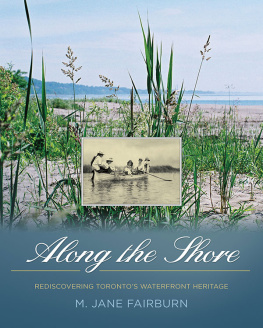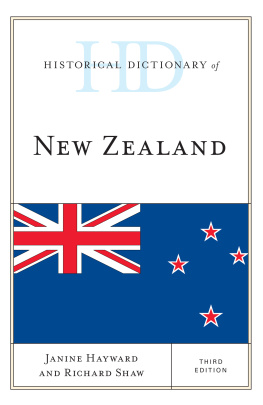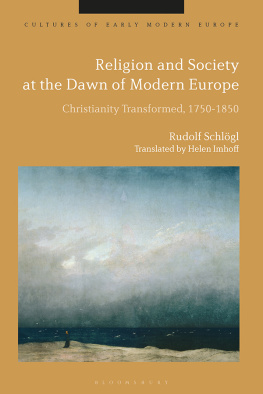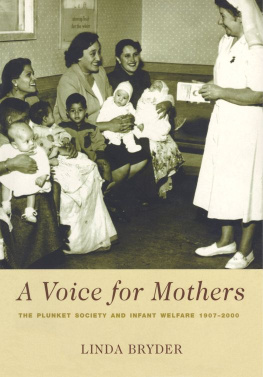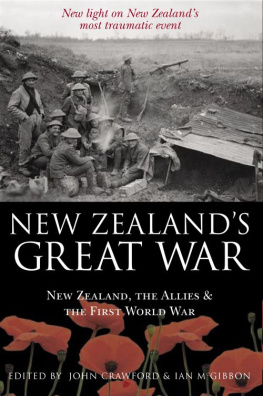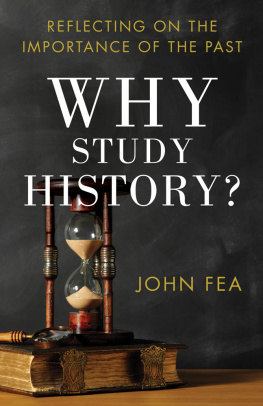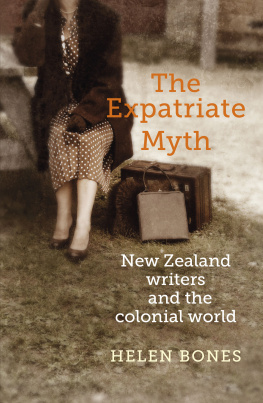During my long search for the defining characteristics of New Zealand settler society I have been assisted by a great many people without whom this book would never have been conceived, written, and published.
Amongst these are my Hist. 316 and Honours students whose research papers led to the accumulation of data which indicated when I was on the right track and when I was wrong. Their discussions in class, furthermore, allowed me to clarify my thoughts and gave momentum to my own research and writing.
I also must thank Graeme Davison, Professor of History, Monash University (Melbourne), for the interest he took in my work at a crucial time and for bringing to my attention various pieces of research on Australian social history which had interesting parallels to my own.
I count myself very fortunate in having a network of friends and academic colleagues whose intellectual stimulation and resistance to mediocrity has compensated for the provincialism of New Zealand university life. Amongst these is Peter Webster, of the Anthropology Department, Victoria University. Some also took the trouble to read earlier drafts of the book, in whole or in part, and gave me the benefit of their trenchant criticism and comments. These people include John Morrow of the Political Science Department, Victoria University; David Thomson and Colin Davis of the History Department, Massey University; Peter Munz, Emeritus Professor of History, Victoria University; Steve Haslett of the Institute of Statistics and Operations Research, Victoria University, who also collaborated with me on a project on violent crime and injected a rigour and sophistication into my research which I could never have achieved by myself; Richard Hill of the Historical Publications Branch, Department of Internal Affairs; Allan Levett, a social research consultant of Wellington; my father, G. E. Fairburn, of Hamilton; and my wife, Maria.
My debt to Elizabeth Caffin, the editor of Auckland University Press, is also acknowledged; she has processed the manuscript with complete professionalism. Likewise I owe much to Dennis McEldowney for the care and effort with which he edited the text.
Lastly I am obliged to Gloria Biggs and Kristen Downey for the long hours they spent entering the text and the many changes to it into the word processor.
T HE reader will probably find the content and form of this book on the social history of 19th-century Pakeha New Zealand unfamiliar and new. Hence some preliminary discussion is needed to indicate why this might be so, and to prepare the reader for the approach the book has taken.
Why will the content seem unfamiliar? The likely reason is that of three common preconceptions of what social history is all about, the book conforms to none.
The first is that social history is antiquarianism, unfocused empiricism, the scrupulous compilation of facts about the everyday experiences of the common people. The compilation should be as voluminous as possible, its criteria of selection being everything contained in the original sources. What is left out should be dictated only by editorial considerations. The arrangement of the minutiae is not by themes but according to the years when they were recorded and the headings of the original sources. With this genre of social history there is no testing of hypotheses, let alone an explicit interpretation, for the assumption is that the facts speak for themselves. Poor in technique, it will not know if the examples it adduces are typical of the behaviour of large aggregations of people. Interested only in little New Zealand, it may ascribe events to causes without realising that in other societies the same causes had the reverse effects or that comparable events stemmed from contrary causes. It may rely on fine writing and entertaining anecdotes to compensate for its lack of intellectual bite and coherence. Its undoubted strength, if the research has been thorough, is to bring forth details which are intrinsically interesting and useful as references. These details may touch at random on the calorie and protein intakes of ordinary folk, their drinking habits, table manners, work practices, earnings, the yields of crops, land-tenure systems, the size of landholdings, the relations between men and women, their sexual traits and child-raising methods, the role of women, the structure of households, leisure pursuits and communal celebrations, religious rites, the customary manner in which turning points in the life cycle are acknowledged, consumer preferences, the concept of social justice or the image of the social structure, ideas about the Deity and His agents, the code of morality, definitions of anti-social behaviour and madness, the punishment of wrong-doers, the forms of medicine, collective representations of extraordinary events, the basis on which status was allocated, relationship with authority and superior status groups, and so on, and on.
The reader will quickly find that this books approach is different altogether. Although the writer agrees that social history is about the everyday experiences of the common people, he believes that the facts do not speak for themselves. To make sense they have to be interpreted; they are intelligible only if they are fitted into a pattern, related to some general principle.
The second preconception is that the literature must reflect professional developments in social history as an academic discipline. Internationally the discipline has become compartmentalised into many subject-areas. They include demography, womens history, history of the family, rural history, the history of popular culture, urban history and so on. Each has acquired its own theoretical orientations, issues, techniques, and standards and forms of evidence. With these developments in mind, it would be natural for the reader to assume that a book which purports to be a general interpretation of colonial social history by a professional social historian would address itself to all the sub-disciplines. Logically this would entail giving the sub-disciplines equal representation, excluding only those clearly irrelevant. In practical terms the book would have to be arranged as a series of topics, equating to the sub-disciplines and allotted a chapter apiece. Each chapter would begin with a discussion of overseas literature. New Zealand data would then be selected and assembled according to the conventions of the sub-discipline, and perhaps formally constituted as a case-study to determine whether a model devised for another society was applicable to New Zealand.
Now the author totally approves of any New Zealand social history which is informed by international professionalism. There could be no better way of opening up a field of research in New Zealand than by using the theory, techniques, and issues in the international literature. A general social history of New Zealand arranged as a series of topics would have far more penetration and purpose than unfocused empiricism. But it is not the best approach. Although it can tell us how the parts of a social system operated as separate entities, it shows nothing of how they meshed together. There is nothing built into it, either, that allows the historian to identify the most revealing parts of a particular society, the special collection of factors which are the ingredients of national character. What is missing from this approach is a governing category, a master variable, the concept most able to identify and integrate those things fundamental and distinctive to the colonial social pattern, while retaining the best qualities of international professionalism.



